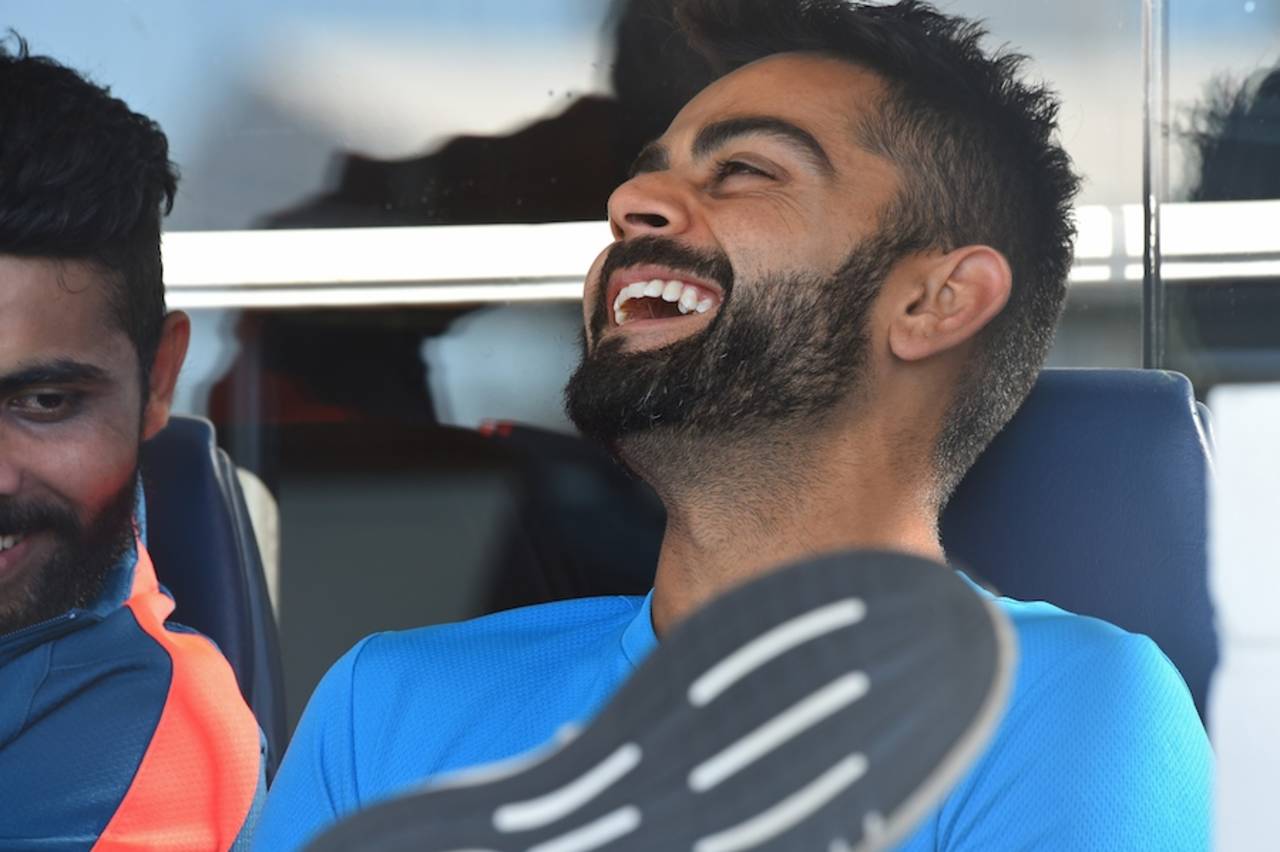People get angry. Young. Old. Middle-aged. Anger is human. Often provoked and sometimes, as it appears to have been in
Virat Kohli's case, bubbling beneath the surface. Once it has found an outlet, there is time for reflection. Kohli surely has pondered over his actions but encouragingly, it seems, the BCCI has made a graceful - and swift -
overture.
In a clear departure from the method adopted by the previous regime, the new dispensation has taken a significant step towards mending a ruptured relationship with the media. There has been no direct apology yet to the journalist who faced Kohli's ire but, by stating that "this kind of incident should not be repeated," an unequivocal message has been sent. By asking Kohli to maintain the "dignity of the Indian team," it has been acknowledged that he did step out of line. There is also a terse warning to "avoid any such behaviour in the future."
When the story first broke on Wednesday morning, it was apparent that the Indian management had not only misjudged its potential fallout but also made a clumsy attempt to brush it aside as a non-event. Despite having had hours to assess the situation and speak to each of the parties involved - the journalist in question, other journalists and onlookers who witnessed the incident and Kohli himself - this was the e-mail sent out to media outlets.
Titled "Clarity on yesterday incident" by the media manager of the team in Australia, Dr RN Baba, the e-mail said (sic)- "There was a misunderstanding and no abusive language was used, Virat has spoken to the concerned gentlemen immediately and matter ends...."
That was the complete statement. Besides needing a quick check for grammar, this so called "clarification" was strewn with inaccuracies. From all accounts, and not just that of the journalist at the receiving end, "abusive language" was indeed used. If the apology was relayed through another journalist, Kohli did not speak to the "concerned gentlemen" as Dr Baba claimed. In fact, in his official complaint to the ICC chief executive Dave Richardson, the journalist, Jasvinder Sidhu of the Hindustan Times, said "no apology" had been tendered.
Unless Sidhu and many of his colleagues on the ground were lying, it was blatantly obvious that Kohli did use abusive language. How long would it have taken the media manager to confirm with Kohli whether he had indeed used abusive language? How long would it have taken to ask Sidhu to walk up the stairs and have a brief chat with Kohli? Would it really have hurt the new Indian Test captain to say, "Sorry mate, I shouldn't have said all that."
Instead, the management sought to "end the matter" with a churlish and inaccurate statement, a grim reminder of the aversion to the Indian media that gained ground under the regime that recently made way. As president, N Srinivasan held the media in contempt and institutionalised this disdain. Players were made off limits; information was at a premium, clarifications sought on developments were rarely forthcoming. An unhealthy mistrust was allowed, in fact encouraged, to fester.
Some of this ire of course is well earned. A large section of the Indian media - and, having spent nearly a decade in news television, I have witnessed this first hand - has failed spectacularly in its functioning. Cricket has been reduced to entertainment and the players been subjected to pretty savage vitriol. Over time, an "us against them" environment has taken root. However, by painting the entire media with the same brush, the BCCI has also boxed in those who remain steadfast, devoted reporters of the game. It caused an unfortunate rupture in the relationship.
The response of this newly-installed regime, led by president Jagmohan Dalmiya, a man known for a gentler dispensation than his predecessor, and secretary Anurag Thakur, known to engage positively with the media, is a welcome attempt to repair this bond.
A veteran on the circuit tells me a story of a time when a cricketer walked up to him and complained bitterly about what had been written about him. "My friend," the hack told him, "You have the choice not to read what I write, alas I have no choice other than to watch you bat." He assures me that conversation ended with a smile on both faces. It would be nice to have those days back.
Gaurav Kalra is a senior editor at ESPNcricinfo. @gauravkalra75
